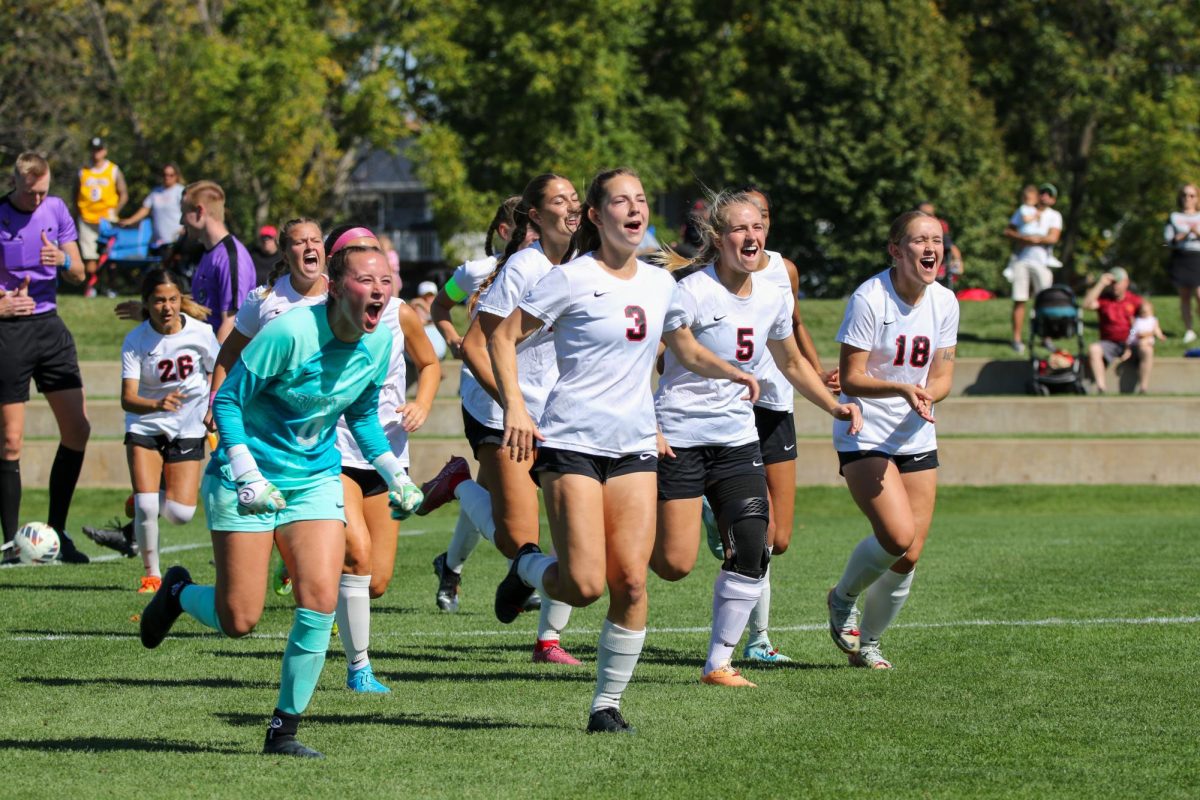
By Tommy O’Donnell
odonnel@grinnell.edu
With a student body boasting more than 500 student athletes, many Grinnellians dedicate a huge part of their college experience to the sport that they love. However, most are unaware of the opportunities available to pursue their love of sports further, especially as coaches.
“I did not initially plan on becoming a coach, although I always enjoyed teaching swim lessons and volunteering to coach,” wrote assistant swim and dive coach Callie Eyman Casey ’14 in an email to The S&B. “I had plans to attend medical school, but after a few setbacks and some self-reflection, I decided to return to Grinnell to help coach swimming and diving.”
Although many students may give up on their dreams of becoming professional athletes after college, this does not mean that they cannot pursue a career in sports.
“When I graduated from undergraduate, I planned to complete my masters and work in the social work field,” wrote head tennis coach Paige Madara in an email to The S&B. “However, I loved coaching tennis and working with athletes and wanted to keep that a part of my life, so I volunteered as an assistant coach during my master’s program and about a week into that position decided to change directions and pursue collegiate coaching as a career.”
As participation in college sports continues to rise, especially in women’s sports, the employment of coaches is expected to grow faster than average: by 15 percent, which will create 36,200 new jobs by 2022, according to the Bureau of Labor Statistics.
According to Madara, students who are passionate about their sports should consider a future career in coaching.
“Talk to coaches from your own sport and different sports to further your learning. Even though coaches from outside your sport may not understand the Xs and Os of your sport, they understand the relationships and team dynamics that help make an effective coach.”
Although a degree in sports coaching is not necessary to pursue a career in this field, students should be aware of the types of qualifications needed to make it as a coach.
“Each sport is different; tennis provides professional certifications at various levels,” wrote Madara.
“I am a certified lifeguard, EMT, and lifeguard instructor. All those certifications helped me to become the assistant swimming and diving coach,” Casey wrote.
Working at Grinnell has allowed Madara to become “surrounded by student-athletes with numerous different backgrounds, experiences, interests, and passions,” she wrote. “To come together as a team and share common goals has been so rewarding.”
Casey, who graduated from Grinnell as a chemistry and GWSS major, described the swim and dive team as “an incredible program.”
She wrote, “The part I love most about coaching is really getting to know the athletes. I am far enough out from graduation that I did not swim with any current team members, so coming back last year it was an entirely new group of athletes for me to get to know.”
Working as a coach can be a demanding job, but the rewards can be extremely fruitful.
“I love working with student-athletes and seeing them develop on the court and as people and when they have “light-bulb” moments when everything starts to come together,” wrote Madara. “It is pretty awesome to be able to have an impact on someone’s life through the avenue of a sport I love.”
For students considering a career as a coach, Casey wrote, “I think the biggest piece of advice to give anyone who is considering going into coaching is to have fun. Coaching is so much more enjoyable when you can relate to your athletes and have fun with them!”
For those interested in learning more about a career in coaching, contact the CLS at career@grinnell.edu.























































